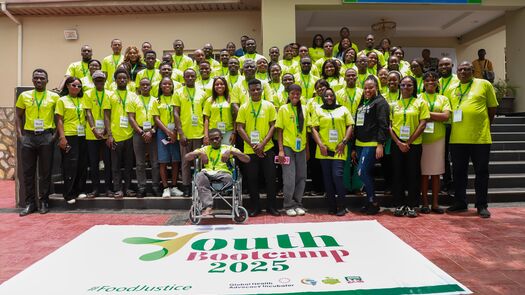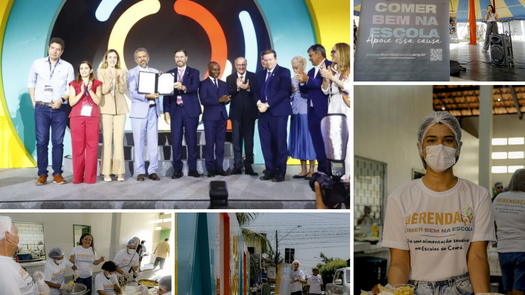November 25, 2025

In Brazil, the ultra-processed product (UPP) industry actively employs strategies to undermine efforts to create healthier school feeding environments. Based on an investigation published by Brazilian outlet O Joio e O Trigo, the article “How the Industry Shapes Bills to Keep Ultra-Processed Foods in Schools” offers a detailed look into how industry groups are influencing legislation to keep UPPs in public school feeding environments.
Industry associations representing food and beverage manufacturers—like ABIA (Brazilian Food Industry Association) and ABIR (Brazilian Association of Soft Drinks and Non-Alcoholic Beverages Industries)—are strategically lobbying lawmakers at the local and state levels. Their goal: dilute or dismantle bills that would restrict the sale and advertising of UPPs in public schools.
Some of the tactics highlighted include:
- Direct pressure on lawmakers, such as sending formal messages requesting the withdrawal of bills from legislative agendas.
- Private meetings with state representatives to propose amendments that remove explicit references to ultra-processed foods.
- Legislative errata—formal corrections submitted to change key language in bills after they are passed, effectively gutting their intent.
This behind-the-scenes interference often results in weakened legislation or, worse, the shelving of proposals altogether.
One of the most critical findings of the article is how fiercely the industry opposes the use of the term “ultra-processed foods” in legislation. They argue that the classification, based on the NOVA food system developed by Brazilian researchers, lacks scientific consensus—despite it being widely accepted by global health authorities, including the World Health Organization and the Pan-American Health Organization.
By removing this language, laws risk becoming vague and unenforceable. As Professor Larissa Loures Mendes of UFMG (Federal University of Minas Gerais) explains in the piece, "When you don’t have this explicit term, you’re limited to lists of products, and that opens up many loopholes." The industry also avoids regulation by suggesting policies focus instead on promoting healthy alternatives to avoid any restriction on unhealthy UPPs.
This pattern of industry interference is not unique to Brazil. Across the globe, food and beverage corporations deploy similar tactics to delay, weaken or block health-promoting policies. What’s happening in Brazilian state legislatures mirrors resistance seen in other parts of Latin America and the world, where UPP producers fight other healthy food policies like front-of-package warning labels, marketing restrictions and sweetened beverage taxes.
What’s notable in Brazil is how local and state-level legislative action—often spearheaded by civil society, public health advocates and concerned parents—is being directly undermined by national corporate lobbying efforts. It’s a powerful reminder that healthy food policy requires not only sound legislation, but also vigilance against industry interference.
This moment calls for renewed commitment from lawmakers to protect children’s health over corporate profit. It also highlights the urgent need for policy coherence: federal and subnational governments must align around clear, science-based definitions and standards for healthy school food. In 2023, Brazil’s federal government issued Decree 11,821, which establishes guidelines for healthy and adequate school meals, including a focus on fresh and minimally processed foods. But this decree is now being used selectively by industry as justification to weaken stronger local proposals.
The Global Health Advocacy Incubator (GHAI) stands in solidarity with our partners in Brazil—including IDEC, ACT Health Promotion, FIAN Brasil and Desiderata Institute—who continue to champion the right to healthy food in schools. Their work to expose corporate influence and push for robust legal frameworks is vital to building a healthier future for Brazilian children. We echo their call: ultra-processed products don’t belong in schools.



